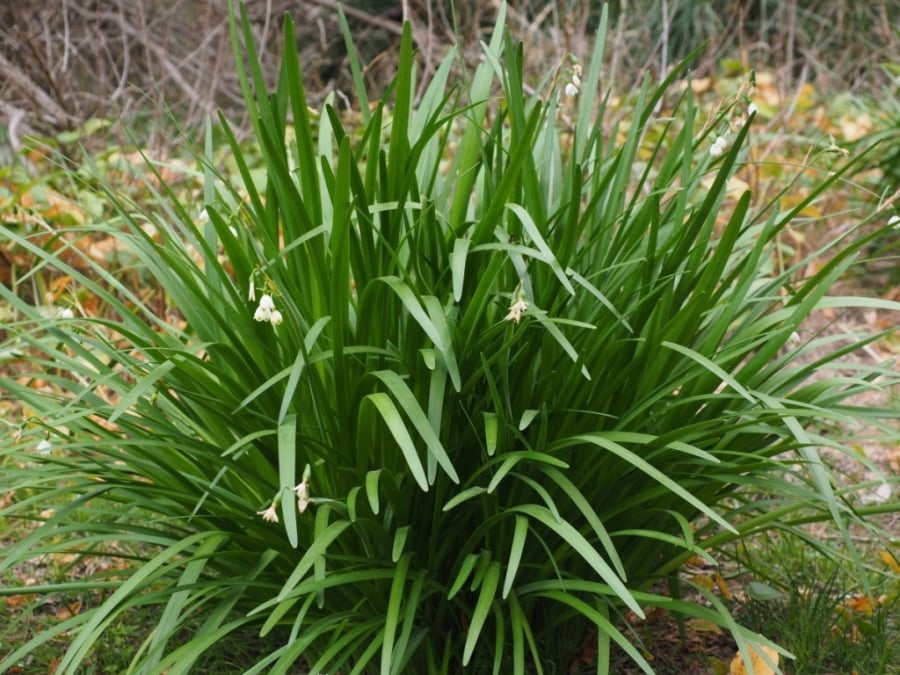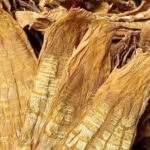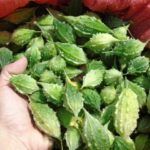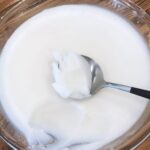Chives resemble scallions, but they have a more pronounced aroma. This herb is used to flavor soups, stir-fries, and is particularly popular in wonton noodle soup. However, some people dislike the smell and taste of chives.
Chives are easy to grow and rarely bothered by pests. You can propagate them by taking a few cuttings from a neighbor’s plant and growing them in a separate pot. They grow rapidly and will soon form a lush bunch.
In traditional Chinese medicine, chives are known as ‘Qi Yang Cao’, which translates to ‘rising yang herb’. Its scientific name is Allium ramosum L., and it belongs to the onion family. Chives are believed to treat backaches, colds, constipation, skin infections, and parasitic worms.
The parts of the chive plant that are used include the leaves, seeds, and roots. The leaves and flower buds are particularly tasty and nutritious. Chive leaves are rich in vitamins and roughage, which improve intestinal peristalsis, aid digestion, relieve constipation, and prevent colorectal cancer. They also help dissolve blood stasis, promote blood circulation, and detoxify the body.

This Super Vegetable is More Nutritious Than Meat and Better Than Medicine
The Amazing Benefits of Chives
Antibacterial Properties: Chives aren’t just a flavoring herb; they also help treat coughs and sore throats. You can chew on chive leaves or gargle with the juice, or you can steam them with honey. Chives contain valuable compounds such as sulfides, saponins, and bitter substances. Notably, the odorin in chives is considered a potent antibiotic against Staphyllococcus aureus and Bacillus coli. Chive leaf juice can be used to fight gut bacteria, soothe sore throats, and treat skin abscesses.
Lowering Blood Pressure and Cholesterol: Like garlic, chives are rich in the natural antibiotic allicin, which helps lower blood pressure and prevent cholesterol synthesis in the body. They also possess antibacterial and antifungal properties, eliminating harmful bacteria and fungi from the intestines and promoting a healthy digestive system.
Digestive Stimulant: In traditional Chinese medicine, chives are used to stimulate digestion and treat constipation and diarrhea. They are beneficial for the digestive system and promote liver and stomach health. Chives’ protein, fat, calcium, iron, carotene, vitamin C, and fiber content can enhance digestion and increase intestinal peristalsis, improving appetite and making them ideal for constipation sufferers.
Cancer Prevention: Chives contain sulfur, carotene, and vitamin A, which are known to inhibit the development and spread of cancer cells in the body. Therefore, incorporating chives into your diet is highly recommended.
Sexual Health Benefits: Chives are believed to boost male sexual health by tonifying the kidneys and strengthening the yang. Chive seeds are often soaked in alcohol with other herbs like ginseng and deer antler. Chive leaves and their juice are also used to treat impotence, premature ejaculation, and spermatorrhea. Additionally, women can benefit from eating chives to relieve back pain, frequent urination, leukorrhea, and sexual apathy.
How to Consume Chives for Maximum Benefits

Chives: A Super Vegetable That Grows Abundantly and Offers Numerous Health Benefits
Chive leaves have a spicy and warm nature, so it’s best to consume them in moderation. Chives can be used as a seasoning, similar to onions and garlic, or added to stir-fries and soups. They are rich in roughage, which is not easily digested and absorbed, so excessive consumption may lead to diarrhea. It is recommended to consume 100-200 grams per meal.
Individuals with digestive issues should avoid consuming large amounts of chives. Mixing chives and milk in the same meal is not advised. Leftover chive soup should not be consumed the next day.
When preparing chives, it is essential to cut them into small pieces and stir-fry them over high heat, working quickly. Prolonged cooking will cause the chives to disintegrate, affecting their taste and causing the sulfide content to deteriorate.
Additionally, those with eye problems, excessive internal heat, stomach issues, or abscesses should refrain from consuming chives.
Unveiling the 6 Ultimate Tips for a Healthy and Happy Toddler’s Appetite this Tet Holiday
The Lunar New Year is a time for family reunions, but it can also be a challenge for parents to ensure their children maintain a balanced and nutritious diet. With the festivities in full swing, how can parents ensure their little ones eat well, stay healthy, and avoid common illnesses during this busy time?




































